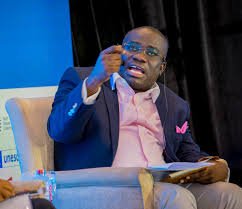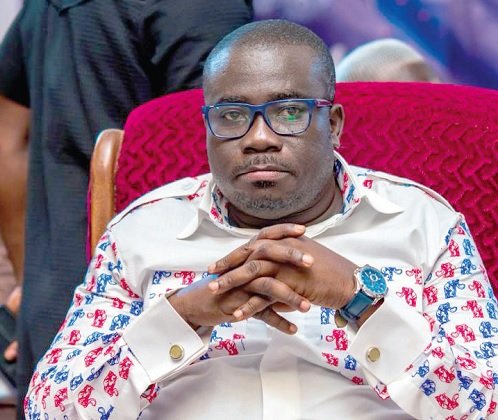Former Member of Parliament (MP) for Dormaa East, Paul Twum-Barimah, has urged Ghana to establish a National Youth Green Finance Facility to unlock capital for youth-led enterprises in the green economy.
He made this call during the African Youth Conference on Natural Resource and Environmental Governance (AYC-NREG 2025) in Accra, where over 2,000 participants gathered to deliberate on sustainable solutions for the continent’s development.
The former legislator, who has long championed sustainable energy and climate policy, emphasised that Ghana’s young people must no longer remain at the margins of the climate transition. His remarks sought to highlight the double challenge of youth unemployment and environmental degradation, underscoring the need for a dedicated financial structure to bridge this gap.
Twum-Barimah argued that without structured financial support, many young Ghanaians with innovative climate-smart business ideas are unable to move beyond conception to execution.
“We cannot continue to allow Ghana’s youth to remain on the sidelines of the energy transition and climate action. By establishing a National Youth Green Finance Facility, we will de-risk youth ventures, open access to affordable capital, and position young entrepreneurs as the vanguard of our sustainable future”
Paul Twum-Barimah, Former MP for Dormaa East

He noted that Ghana’s abundance of renewable energy potential, critical green minerals, and agribusiness opportunities presents an untapped avenue for sustainable growth. However, access to capital remains the single greatest barrier to youth-led innovation.
The proposed facility, according to Twum-Barimah, would not only provide concessional loans, grants, and guarantees for youth-led ventures but also create partnerships with local banks and international institutions such as the Green Climate Fund and the African Development Bank.
“Green finance is not just about climate action; it is about jobs, innovation, and dignity for Ghana’s youth. The Facility will ensure that our young people are not just beneficiaries of policy but drivers of sustainable growth”
Paul Twum-Barimah, Former MP for Dormaa East
He further advocated for inclusive financing strategies that deliberately support young women, rural entrepreneurs, and persons with disabilities, ensuring equity in Ghana’s green transition.
For him, the creation of such a structure would mean building a pipeline of investment-ready businesses that could power both national development priorities and the African Union’s Agenda 2063.

Rallying Stakeholders for Implementation
Twum-Barimah called on financial institutions, private investors, and development partners to collaborate with government in operationalising the facility.
He argued that such collective action would not only deliver economic empowerment for Ghana’s youth but also strengthen the country’s response to the climate crisis. His appeal echoed his long-standing advocacy for policies that embed young people at the centre of national transformation.
Throughout his political and policy career, Twum-Barimah has insisted that youth must be recognised not only as beneficiaries of reforms but as central actors shaping the country’s sustainable future.
The African Youth Conference on Natural Resource and Environmental Governance 2025, convened under the theme “Transforming Africa’s Natural Resource Governance Through Youth-Led Solutions”, brought together youth leaders, entrepreneurs, civil society actors, development partners, financiers, and policymakers.
The discussions focused on innovative pathways for inclusive governance of Africa’s natural resources, with special attention on the role of young people in shaping policy and driving enterprise in the energy and climate sectors.

The event provided a platform for voices like Twum-Barimah’s to push for structural reforms that address pressing issues of youth unemployment while simultaneously tackling the climate emergency.
His proposal for a National Youth Green Finance Facility was among the boldest calls of the conference, reflecting both the urgency of climate action and the imperative of empowering Ghana’s young population to lead in that effort.
As Ghana positions itself within Africa’s broader climate and energy transition agenda, the debate over financing mechanisms for youth-led innovation is expected to grow louder.
Twum-Barimah’s intervention at the conference may well serve as a catalyst for national conversations on how to create equitable, accessible, and sustainable funding systems for the country’s future green leaders.



















